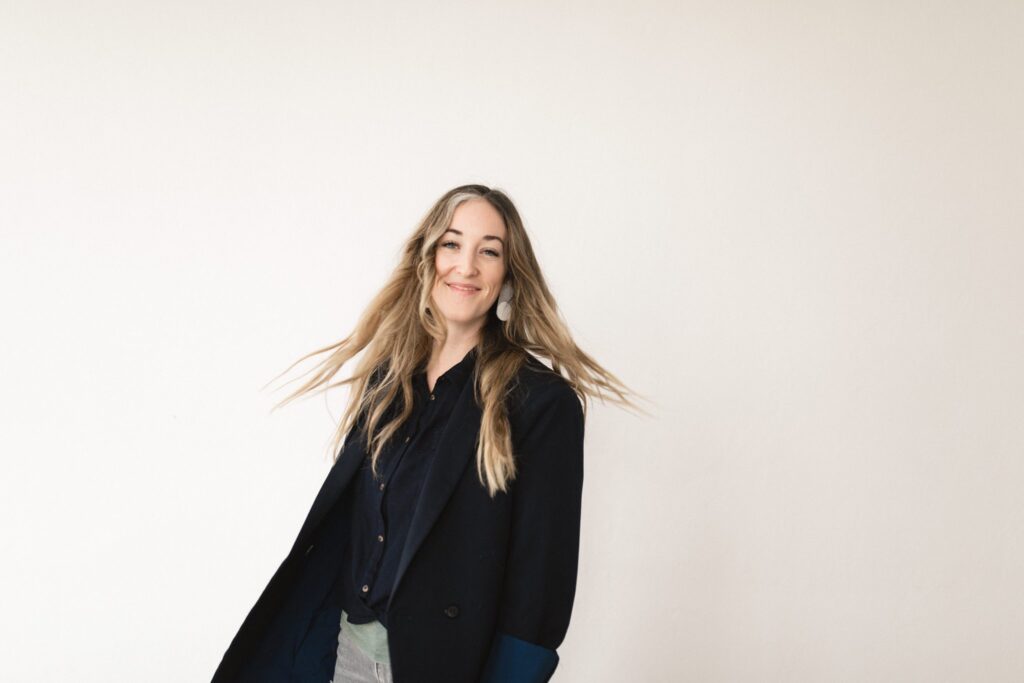In this interview, we delve into the inspiring journey of Sarah Duignan, who balanced the demanding pursuit of a PhD with the responsibilities of single parenting. Despite facing numerous challenges, including financial struggles and societal judgments, Sarah’s resilience and determination shine through her story. Her experiences offer a powerful reminder of the strength that comes from pursuing one’s dreams while nurturing a growing family. Through her personal anecdotes and thoughtful reflections, Sarah provides valuable insights into overcoming obstacles, finding balance, and setting an example for her daughter. Her journey is a testament to the impact of perseverance, support networks, and staying true to one’s aspirations.
1. What inspired you to pursue a PhD while single parenting?
I was working as a host at a vegan restaurant in Toronto and got the news of being accepted into a PhD program. This was a matter of days after I found out that I was pregnant. It had been a dream of mine to get a PhD, as a tangible pursuit. I was finishing up my Masters and saw the PhD as a way out of part-time jobs, a potential future. And with a child on the way, I clung to the idea of the PhD as the pathway to building something secure for my daughter and I one day – whether that is always true of a PhD is up for debate, though.
2. How did you balance the demands of your PhD program with raising your daughter?
It was impossible to feel a sense of balance, really. I think the best way to navigate it for me was to accept that some days, my focus was on my daughter’s needs. Some days, it was getting through comprehensive reading lists and submitting final papers. Some days it was a total failure on both ends! I’d try to carve out time to ensure it all happened, but there were many days where I’d have a call with my supervisor getting angry with me, all while my daughter was throwing a potted plant on the floor and my ceiling was leaking. I embraced chaos as much as I could. Once I stopped trying to make it all work perfectly every day, I could set some vague goals for parenting, PhD work, and exercise for a month at a time rather than hyper-specific daily to-do lists.

3. Can you share a moment when you felt particularly motivated or disciplined despite your challenges?
I was out at a rec hall on a First Nation that I was working with during my research, and interviewing three young women who all became mothers early in life. I was so, so broke at the time, like bank account in the negatives for weeks on end, but I had managed to pull together a bit of funding to make sure they got a gift card, some small craft activities for their kids, and a free hot meal (an actual meal, catered by a local woman, rather than the hand-held nonsense that doesn’t fill you up). It was supposed to be an hour-long session, but we all brought our kids who started playing together. We had a conversation about the Indigenous water quality crisis, how it specifically affected their roles as mothers and women, how it connected more broadly to intergenerational trauma and their goals to build up their community. We were able to laugh in between interview questions as our kids tried to wander out into the halls, or connect over how tricky life can be when you’re on a shoestring budget providing for sweet little babies. It was an empowering moment, pulling that day off, sharing space with such remarkable women, hearing their stories – and also not feeling so alone or shamed as a single young mum for the first time.
4. How did you combat the negative framing of your situation by family and friends?
I’m a big fan of the show Lost, particularly the John Locke character. He had a line, “Don’t tell me what I can’t do!” that my brother always said reminded him of me. There were days where the way I was treated by my peers at the university broke my heart. I walked in on conversations where other grad students would say it was “irresponsible” of me to be a PhD student if I was going to bring my child-baggage into it. There were so many assumptions about “messy moms” and “pulling the mom card” to get out of work that weren’t at all true. I had the highest GPA of my cohort, all while balancing a new baby and a part-time restaurant job – nothing lazy about that! The people in my life that shrouded our relationships with doubt were people I consciously stopped trying to maintain friendships with. But their hurtful comments were a reminder to keep going, for myself, and show my daughter the importance of knowing your own self-worth. Little by little, I advanced through it, and found that I could also support younger women I taught who were interested in starting grad school. I could show up for them in a way that I desperately wished I was afforded, and I could make my own classroom and environment a less competitive, toxic, cruel space.
5. What strategies did you use to ensure that you and your daughter thrived?
I made sure we always had a safe and calm space to be together, to talk through what was bothering her, identify what she was feeling and why. We’d go for coffee dates or trail hikes where she could just explore her feelings, and we could be out in the world and together. Those made me feel reaffirmed that I was healing and building something for both of us. But also important to both of us thriving was being able to be creative and silly. We’d make our own Halloween costumes, brainstorm different science experiments we could do in our little kitchen, find joy in between the demands of work and school and endless dinner-making to just play together.
6. How did breaking family cycles of relationship trauma empower you?
It made me feel like I could talk to my family members again. It made me feel like I didn’t have to hide what was happening. It was shaky at first, I think a lot of family were worried about how I’d fare. But I knew if I could just get an apartment and a couch and a job then I’d be able to tackle whatever came next. Challenging relationships with partners and co-parents can feel like a heavy secret, a burden that you can’t share with loved ones because they’ll say, “I told you so!” – but I think the fear comes from accepting that the feelings you have about something not being right are real. And when I stepped away from that relationship, it meant that I didn’t have to cower behind a performed self, I could be funny again, laugh, goof off, have a full life. Laughing and real connection with my family were totally lost before that.
7. What role did your support network play in your journey?
Hugely, hugely helpful to finding a safe place to land. My support network of friends and family helped in two primary ways: one was showing up for coffees or walks and just being together, and the other was financial help. The latter is never discussed in divorce memoirs, but it’s a very real and limiting factor in trying to leave a relationship when you are a parent, particularly if you were only common-law, in your early 20s, and not getting any child support from a separation. My parents helped me with childcare costs, or with groceries, or sometimes with laundry, and those little moments really saved my life. It allowed me to keep working and dreaming of making my own financial life healthy one day. My friends were also essential to my growth, they never made me feel small for wanting to finish the PhD, they always encouraged me and cheered me on. They saw who I really was when I wasn’t quite sure of myself, and for that I have endless thanks. I’ll never be able to repay any of them for how loved they made me feel.
8. How did you maintain your mental health throughout your PhD and parenting journey?
Not to be a total cliché, but I started therapy. It’s a huge feat when you come from an Irish Catholic family to actually go to therapy! I was lucky enough to get some free counselling sessions through my university, where I was given exercises to look at how I was projecting fears onto my relationship with my daughter, and how to navigate the aggressive and anxiety-inducing power dynamics I felt with my supervisor.
That led me to pursue activities that I loved in childhood but had distanced myself from, like kayaking and hiking, reconnecting with water and land. My mental health thrived when I was able to read good literature and get outside, so that was a priority and a non-negotiable in the latter years of my PhD (plus, a good way to tire out my energizer-bunny toddler at the time!).
9. What has been the most rewarding part of setting an example for your daughter?
Seeing her develop her own strength and emotional intelligence as a young girl. Girls are asked to be apologetic and quiet when we’re growing up, and through my examples and our many, many conversations about life over the years, I’ve seen her grow into her own identity and power in a way I admire. I’m so proud of her, how she handles her own challenging situations, and I am glad that she has a tool kit to help her through life as she becomes an adult – I’ll still be by her side, but I am confident that she has the sense of self that can really help you in tricky social situations where you’re asked who you want to be, and why.
10. How did you go about building a network of women in similar situations?
Mostly through online connections! I don’t have many single mum friends, but those I do I cherish with my whole heart. Becoming a single parent is a quiet and isolating experience, you can’t really share things online or with people loudly, because you’re making sense of grief, trauma, potential poverty, and making sure your kids are safe. It’s hard to get together in person when you’re going through it that way.
But little by little, through Instagram DMs that burst into real life friendships, we found each other and shared our stories, or just held each other through really difficult circumstances. Showing up isn’t always physical – sometimes it’s texting screenshots of a mess and validating that it is, in fact a mess, so that other women don’t doubt themselves and their gut instincts. Especially after you’ve left a bad relationship, those moments are really integral to building up some confidence.
11. Can you share a specific book or resource that significantly helped you during this time?
There are two books I really pulled from during this time, though they may seem unconventional. The first is The Professor Is In: The Essential Guide to Turning your PhD into a Job by Karen Kelsky. It has clear, direct, example-filled advice on how to think beyond the ivory towers of academia and led me to getting a job in environmental consulting and some reliable income. On the surface, it’s about proving to professors that you can get a job, be it as a professor or elsewhere, but at the deeper level it’s an exploration of defining your own value.
The second book that helped me was Elaine Welteroth’s More Than Enough memoir – she was the first Black woman editor of Teen Vogue, the youngest editor in the magazine’s history, and changed the magazine to infuse more social consciousness. Her story and come-up is so far from my own world, but the energy and determination she had approaching all her big goals was such an inspiration in finding my own footing.
12. What advice would you give to other single parents pursuing advanced degrees?
There are two lessons I had that I would share here – one is knowing why you want to pursue an advanced degree. It’s okay if it’s simply just because you want to. Knowing why you want something means the moments of doubt can be met with that sense of purpose again. And accomplishing it means you know what you accomplished and what it took to get there. Not to say those moments of doubt ever go away, but motivation for a goal line is necessary when you’ve got a million other things to balance.
The other element is building a community of friends and support outside of academia. When everything started to paralyze me – the mounting research needs, ethics applications, competitive colleagues, grant applications – being able to go out and have a meal with friends that had absolutely no interest, experience, or idea of what grad school was like brought me out of my interior spiral. Life doesn’t start when a degree ends, and it’s important to keep connected with the people and activities and spaces that bring you energy through it all.
14. What projects or initiatives are you currently most excited about?
I’m currently shifting into writing more publicly, through my AnthroDish podcast and Substack newsletter on food, health, and culture, and have been building a new set of relationships and connections through this work. It’s been energizing to meet new-to-me writers and thinkers who show up creatively against the bleakness of global events. I’m writing for myself again, fun short essays, creative and weird little pieces, with a bigger piece in the works as well.
It’s been great to set out some new dreams now that my daughter is safely established in our new town: she has befriended some wonderful weirdos, she’s discovered a love of rock-climbing, and is an absolute fish in the water. We’ve expanded our family, too, I married, and we have a newborn son, so these are “projects” in life where we’re learning to experience relationships in healthy ways, seeing what can happen when I’m not scraping money together for baby formula anymore.
15. How do you stay inspired and motivated in your personal and professional life?
I think because I established such a healthy external life beyond my research and work during my PhD, I found it easy to maintain my motivations as my daughter and I moved into a new phase in life. I still take inspiration and delight in travelling and camping with my family, in simple walks before bedtime in the summer, reading really good fiction books, or making a meal together and eating it out on our back deck. I think that new work goals and projects can only come from living life, and that brings the energy I need to tackle whatever spreadsheets are in my future, too.
I took a writing productivity course through Boola Bos a short while ago, where the creator Bronwen made an exercise of identifying all the different roles you play in life: mother, wife, neighbour, writer, friend, consultant, etc. and creating goals for each. Like I learned in my single parenting days, you can’t always show up to every single role every single day, but I like the process of identifying big and small goals through my relationships: I want to learn more about the video game my daughter is playing, or I want to help her build confidence in math. I want to make space on a busy week to have a good glass of wine with my husband. I want to write a chapter of my novel by the end of the month. Saying the goals out loud make it more of a reality to keep building up!
IG: @sinsarahdee
W: https://www.anthrodish.com/






